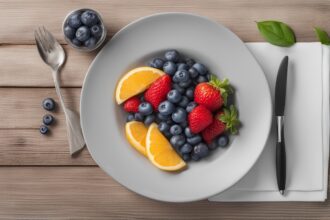Intermittent fasting (IF) has gained immense popularity as a lifestyle choice for weight management, improved metabolic health, and overall wellness. However, one of the most critical aspects often overlooked during intermittent fasting is proper hydration. Staying hydrated is essential for maintaining energy levels, supporting bodily functions, and ensuring the fasting process is sustainable. In this comprehensive guide, we’ll explore actionable hydration tips during intermittent fasting to help you thrive while adhering to your fasting schedule.
Why Hydration Matters During Intermittent Fasting
When practicing intermittent fasting, your body undergoes periods without food intake, which can sometimes lead to dehydration if you’re not mindful. Dehydration can cause fatigue, headaches, dizziness, and even cravings that might tempt you to break your fast prematurely. Water plays a vital role in detoxification, digestion, and regulating body temperature—processes that remain active even during fasting. Ensuring proper hydration can also help curb hunger pangs, making it easier to stick to your fasting window. Prioritizing hydration is not just about drinking water; it’s about maintaining a balance of fluids and electrolytes to support your body’s needs.
Top Hydration Tips During Intermittent Fasting
Navigating hydration during intermittent fasting doesn’t have to be complicated. Here are some practical tips to keep you hydrated and feeling your best:
- Start Your Day with Water: After waking up, drink a large glass of water to kickstart hydration. Overnight, your body loses fluids, and replenishing them first thing in the morning helps prepare you for the fasting period ahead.
- Carry a Reusable Water Bottle: Keep a water bottle with you at all times as a constant reminder to sip throughout the day. Aim for at least 2–3 liters of water, depending on your activity level and climate.
- Set Reminders: Use phone alarms or apps to remind yourself to drink water at regular intervals, especially during longer fasting windows like 16:8 or 18:6.
- Monitor Urine Color: A simple way to check hydration levels is by observing the color of your urine. Pale yellow indicates good hydration, while darker shades suggest you need to drink more water.
For more insights on maintaining wellness during fasting, check out our post on Fasting Wellness Tips.
Can You Drink Anything Besides Water While Fasting?
One common question about intermittent fasting is whether beverages other than water are allowed during fasting windows. The answer depends on the type of fast and your goals. Plain water is always the safest choice as it contains no calories and won’t break your fast. However, certain zero-calorie drinks like black coffee, unsweetened tea, and sparkling water can also be consumed without disrupting the fasting state. Be cautious with artificial sweeteners or flavored waters, as they might trigger insulin responses or cravings in some individuals. If you’re unsure, stick to water to maintain the purity of your fast. For a deeper dive into fasting-friendly drinks, explore our guide on Fasting-Friendly Beverages.
Electrolytes and Hydration: Why They Matter
During intermittent fasting, especially in longer fasts or if you’re active, your body may lose essential electrolytes like sodium, potassium, and magnesium through sweat and urine. These minerals are crucial for muscle function, nerve signaling, and maintaining fluid balance. Without adequate electrolytes, you might experience symptoms like muscle cramps, fatigue, or headaches. To combat this, consider adding a pinch of high-quality sea salt to your water or consuming an electrolyte supplement during your eating window. Foods rich in electrolytes, such as avocados and leafy greens, can also be prioritized when you break your fast. Learn more about balancing nutrients in our article on Nutrient Balance During Fasting.
How Much Water Should You Drink During Fasting?
The amount of water you need during intermittent fasting varies based on factors like body weight, activity level, and environmental conditions. A general guideline is to aim for 8–12 cups (2–3 liters) of water per day. However, if you’re exercising or live in a hot climate, you may need more. Listen to your body—thirst is a late indicator of dehydration, so don’t wait until you feel parched to drink. Spread your water intake evenly throughout the day, sipping small amounts frequently rather than chugging large quantities at once. This approach helps your body absorb the fluids more effectively. For personalized hydration plans, check out our resource on Custom Hydration Plans for Fasting.
Common Hydration Mistakes to Avoid During Fasting
While staying hydrated during intermittent fasting seems straightforward, there are common pitfalls that can hinder your efforts. Avoid these mistakes to ensure optimal hydration:
- Drinking Too Little Water: Underestimating your water needs can lead to dehydration, impacting your energy and focus.
- Overloading on Caffeinated Drinks: While black coffee or tea is allowed, excessive caffeine can have a diuretic effect, increasing fluid loss.
- Ignoring Electrolyte Needs: Focusing solely on water without replenishing electrolytes can cause imbalances, especially during extended fasts.
- Waiting Until Thirst Hits: Thirst is a sign you’re already dehydrated. Drink proactively to stay ahead of your body’s needs.
By being mindful of these errors, you can maintain proper hydration and maximize the benefits of intermittent fasting. For additional fasting pitfalls to avoid, read our post on Common Fasting Mistakes.
Disclaimer: The information provided in this article is for educational purposes only and should not be considered medical advice. Intermittent fasting and hydration needs vary from person to person, and what works for one individual may not work for another. Always consult with a healthcare professional or nutritionist before starting any fasting regimen or making significant changes to your diet or hydration practices, especially if you have underlying health conditions or are on medication.
References
- Harvard Health Publishing – The Importance of Hydration
- Mayo Clinic – Water: How Much Should You Drink Every Day?
- National Institutes of Health – Intermittent Fasting and Human Metabolic Health
- WebMD – Water and Weight Loss
- Centers for Disease Control and Prevention – Water and Healthier Drinks
This content is for informational purposes only and not a substitute for professional advice.






